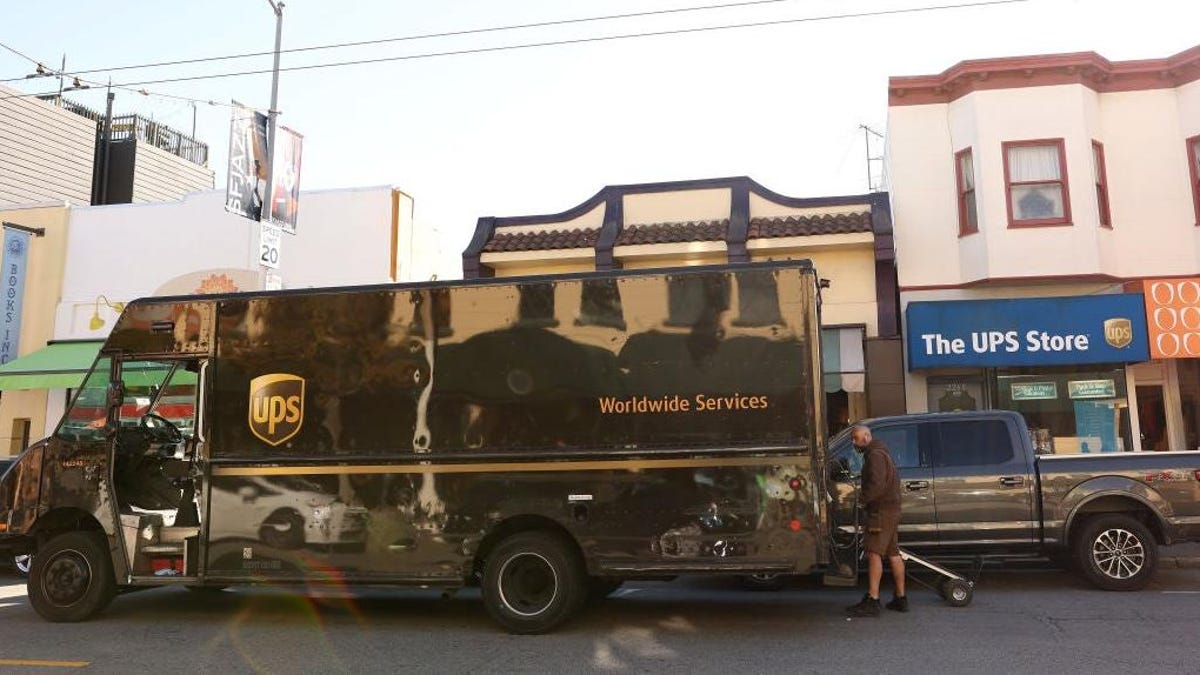
UPS has avoided a strike only one day after 340,000 employees threatened to walk out over an unsustainable pay rate for part-time workers. The Teamsters Union, which represents UPS workers, opened contract negotiations on Tuesday to secure higher pay, but the union vowed to go on strike if a deal could not be reached by July 31, marking what would have been the biggest strike to occur in the U.S. in 60 years.
Teamsters announced on Tuesday that they avoided the walk-out with a historic UPS contract that gives part-time and full-time workers higher wages, equal pay, and part-time rewards, among other benefits. “We’ve changed the game, battling it out day and night to make sure our members won an agreement that pays strong wages, rewards their labor, and doesn’t require a single concession,” Teamsters President Sean O’Brien said in a statement. “This contract sets a new standard in the labor movement and raises the bar for all workers.”
Advertisement
As a result of the agreement, UPS is putting forth $30 billion as part of the agreed-upon negotiations which includes a pay raise of $2.75 more per hour in 2023 for existing full-time and part-time workers with a $7.50-an-hour annual raise over the life of the contract, which extends for five years. The raise will bring full-time workers’ average pay to $49 an hour while existing part-time workers will receive no less than $21 an hour if workers approve the contract. New part-time employees will also be hired at a starting pay of $21 per hour and advance to $23 per hour. Under the new contract, UPS can’t force workers to work overtime on their days off and the company agreed to add 7,500 full-time Teamster jobs at UPS.
“Together we reached a win-win-win agreement on the issues that are important to Teamsters leadership, our employees, and to UPS and our customers,” UPS CEO Carol Tomé said in the statement. “This agreement continues to reward UPS’s full- and part-time employees with industry-leading pay and benefits while retaining the flexibility we need to stay competitive, serve our customers and keep our business strong.”
Advertisement
Advertisement
If UPS and Teamster hadn’t come to a timely agreement, millions of Americans who heavily rely on UPS for their everyday shipping needs would have been directly affected. The prospect of an impending strike caused supply chains like Amazon, which uses UPS in addition to its own delivery service, to consider other options, including using FedEx or USPS to get their orders to their destinations. However, it’s likely the other shipping companies wouldn’t have been able to handle the surge in packages. On average, UPS delivered more than 24 million packages per day last year, marking a significant disruption for supply chains around the world.
“You’d have supply chain disruption like we witnessed during the pandemic potentially, where you won’t be getting your deliveries,” Jonathan Gold, vice president of supply chain and customs policy at the National Retail Federation told The Hill. “So, those who are relying on next day, two-day delivery of whatever you buy online or somewhere else, potentially cannot be delivered.”
In light of UPS’s pending contract, supply chains can rest easy that a mass strike likely won’t occur. The Retail Industry Leaders Association told The Wall Street Journal that the agreement was “an enormous relief to retailers, who have been navigating the possibility of a strike and the associated uncertainty for weeks.”
The group added, “We encourage a quick ratification and adoption of the agreement to ensure this chapter of uncertainty is closed.”
Services Marketplace – Listings, Bookings & Reviews